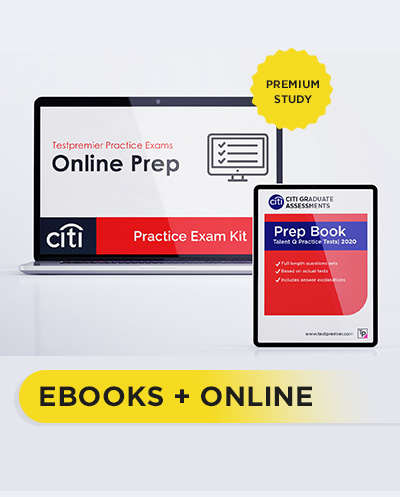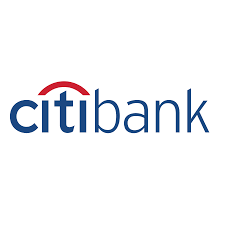Citi Bank Practice Test
Securing a position at Citi Bank, one of the world’s leading financial institutions, is a dream for many aspiring finance professionals. To turn this dream into reality, you’ll need to excel not only in interviews but also in aptitude tests. Citi Bank’s Practice Aptitude Test Pack [Year] is designed to help candidates prepare and perform their best. In this blog post, we’ll dive into the details of this test pack, what it entails, and how to make the most of it to increase your chances of success.
What Is the Citi Bank Practice Aptitude Test [Year]?
The Citi Bank Practice Aptitude Test Pack is a comprehensive resource designed to assess your skills and abilities in various areas critical to banking and finance. These tests are used to evaluate candidates’ numerical reasoning, verbal reasoning, and critical thinking abilities, all of which are essential for success in roles at Citi Bank.
Components of the Test Pack
- Numerical Reasoning: This section evaluates your ability to work with financial data, analyze numerical information, and make data-driven decisions. You’ll encounter questions related to financial calculations, data interpretation, and mathematical reasoning.
- Verbal Reasoning: In this section, your proficiency in understanding written information and drawing conclusions from it will be assessed. You’ll be presented with passages and questions that test your reading comprehension and critical thinking skills.
- Situational Judgment Test (SJT): The SJT assesses your ability to make sound decisions in real-life work scenarios. You’ll face a series of situations and choose the most appropriate course of action based on Citi Bank’s values and best practices.
- Personality Assessment: This portion of the test gauges your personality traits and how well they align with the company’s culture and expectations. Citi Bank is known for valuing traits such as teamwork, adaptability, and integrity.
How to Prepare for the Citi Bank Practice Aptitude Test Pack
- Understand the Format: Familiarize yourself with the format of each section in the test pack. Knowing what to expect will reduce test anxiety and allow you to allocate your time wisely.
- Practice Regularly: Consistent practice is key to improving your aptitude test performance. Utilize the practice materials provided in the Citi Bank Practice Aptitude Test Pack to hone your skills.
- Time Management: Aptitude tests are usually time-sensitive. Practice answering questions under timed conditions to enhance your ability to work efficiently.
- Analyze Your Mistakes: Review your practice test results and analyze your mistakes. This will help you identify weak areas and focus your efforts on improvement.
- Seek Feedback: If possible, seek feedback from mentors or peers who have experience with similar tests. They can provide valuable insights and tips for improvement.
- Simulate Real Test Conditions: Try to replicate test conditions as closely as possible during your practice sessions. This includes finding a quiet space, using a timer, and eliminating distractions.
Sample Questions for Citi Bank Graduate Practice Tests and Worked solutions
NHS Graduate test pack Verbal Reasoning
People assume that they go to the hospital to get well. However, in the past few years, this perception has been challenged by the real risk of acquiring a deadly infection while in hospital. As a consequence, public confidence in the health service has suffered. An antibiotic-resistant the strain of bacteria was first identified in the 1950s. It was a staphylococcus common in abscesses and bloodstream infections and it had become resistant to the antibiotic penicillin.
Since then the bacteria have become resistant to a second antibiotic and have become established as a source of infection in many nursing homes and hospitals. Today it is believed to cause about 1,000 deaths each year as a result of hospital-acquired infections. Action that can beat this ‘superbug’ is simple but expensive. It requires very high levels of hygiene and cleanliness and a program of testing so that infected patients can be isolated and treated.
Question 1.
Staphylococcus infections kill around 1,000 people a year.
A. True
B. False
C. Cannot tell
Question 2.
If clean hospitals had been a priority in the 1950s we would not face this threat today.
A. True
B. False
C. Cannot tell
Question 3.
Staphylococcus became established as a source of infection in many nursing homes and hospitals in the 1950s.
A. True
B. False
C. Cannot tell
Question 4.
Staphylococcus has become a ‘superbug’.
A. True
B. False
C. Cannot tell
Question 5.
Infections of the bloodstream are more serious than abscesses.
A. True
B. False
C. Cannot tell
Answers
Question 1. B, Explanation: The 1,000 deaths result from hospital-acquired infections;
Question 2. C, Explanation: The passage provides no information on how the antibiotic-resistant bacteria might have been countered in the 1950s;
Question 3. B, Explanation: The passage states that the infection became established in hospitals and nursing homes since that time;
Question 4. An Explanation: The term is used to describe it in the passage;
Question 5. C, Explanation: The passage does not provide information on the relative severity of these conditions.
NHS Graduate test pack Numerical Reasoning
Question 1
What proportion of the medals won by France is Silver?
A. 20%
B. 30%
C. 40%
D. 50%
E. 60%
EXPLANATION The total medals won by France are: Gold = 7, Silver = 16, Bronze = 17. Total = 40, therefore the proportion of Silver won by France Is 16/40 x 100 = 40%. Answer: (C)
Question-2
What was the percentage difference in the total silver medals won between Australia and bronze medal won by Italy?
A. 33%
B. 30%
C. 25%
D. 39%
E. 60%
EXPLANATION Percentage difference of total silver won by Australia and bronze won by Italy? Bronze by Italy = 10, Silver by Australia = 15, Therefore = (15 – 10)/15 x 100- = 33%. Answer: (A)
Question-3 What proportion of the medals won by Germany is gold?
A. 35%
B. 38%
C. 27%
D. 39%
E. 30%
EXPLANATION The proportion of medical that are gold won by Germany is Total medal won by Germany = 16 15 10 = 41 medals = 16/41 x 100 = 39.02% ≈ 39%. Answer: (D)


